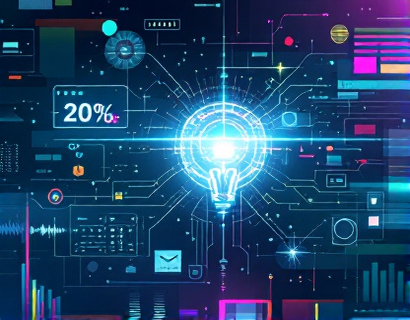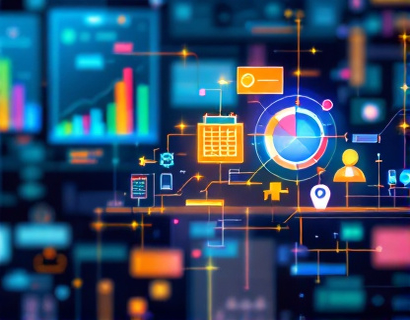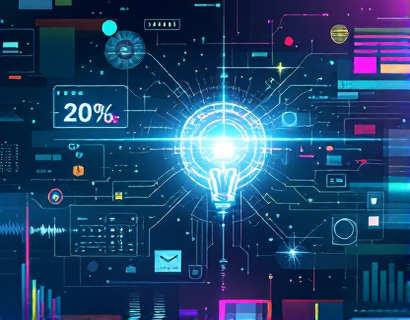AI-Powered Legal Insights: Transforming Access to Attorney Services and Legal Knowledge
The integration of artificial intelligence in the legal sector has ushered in a new era of accessibility and efficiency for both legal professionals and individuals seeking legal assistance. This transformative shift enables users to gain instant access to expert legal insights, real-time information on attorney services, and essential legal knowledge. The purpose of this article is to delve into how AI-driven platforms are revolutionizing the way legal insights are consumed and utilized, ensuring users can make informed decisions with confidence and ease.
Evolving Landscape of Legal Services
The traditional model of accessing legal services has been undergoing significant changes. With the rise of technology, the legal industry is embracing digital solutions to bridge the gap between complex legal processes and the general public. AI-powered platforms are at the forefront of this revolution, offering a seamless and efficient way to navigate the often intricate and daunting world of legal services. These platforms leverage advanced algorithms and machine learning to provide users with timely and accurate information, thereby democratizing access to legal knowledge.
Instant Access to Expert Legal Insights
One of the most compelling features of AI-driven legal platforms is the ability to provide instant access to expert legal insights. Users can engage with a virtual assistant that mimics human-like conversation to gather information on a wide range of legal topics. This real-time interaction ensures that users receive up-to-date information, which is crucial in a field where laws and regulations are constantly evolving. Whether it's understanding the nuances of contract law, navigating employment regulations, or exploring intellectual property rights, these platforms offer comprehensive guidance at the user's fingertips.
AI Chat Interface: A User-Centric Approach
The AI chat interface is designed with the user in mind, prioritizing simplicity and ease of use. This intuitive interface allows users to ask questions in natural language, making the process of seeking legal insights as straightforward as possible. The chatbot's capabilities extend beyond basic queries; it can provide detailed explanations, cite relevant case law, and even suggest potential legal strategies based on the user's specific situation. This level of interaction not only enhances user experience but also builds trust in the platform's ability to deliver reliable legal advice.
Comprehensive Legal Knowledge Base
Beyond real-time chat interactions, these AI-powered platforms offer a robust knowledge base that users can access on demand. This repository of legal information covers a broad spectrum of topics, from fundamental legal principles to advanced case studies. Users can explore articles, guides, and FAQs that are regularly updated to reflect the latest legal developments. This comprehensive resource serves as an invaluable tool for both legal professionals looking to stay current with industry trends and individuals seeking to educate themselves on legal matters affecting their lives.
Industry Trends and Analysis
Staying informed about industry trends is crucial for anyone involved in the legal field. AI-driven platforms provide insights into emerging legal trends, helping users anticipate changes and adapt their strategies accordingly. For legal professionals, this means staying ahead of the curve in areas such as technology law, environmental law, and international trade law. For individuals, understanding these trends can empower them to make informed decisions regarding contracts, disputes, and compliance issues. The platform's analytical tools break down complex trends into digestible insights, making it easier for users to grasp the broader implications of legal shifts.
Enhancing Decision-Making with Data-Driven Insights
The ability to access timely and accurate legal information significantly enhances the decision-making process for both legal practitioners and clients. AI-powered platforms aggregate data from various sources, including court decisions, legislative changes, and industry reports, to provide a holistic view of the legal landscape. This data-driven approach allows users to evaluate different legal options, assess risks, and make informed choices. For instance, a business owner can use the platform to analyze the legal implications of entering a new market or forming a partnership, ensuring that all potential risks and benefits are thoroughly considered.
Secure and User-Friendly Experience
Security and user experience are paramount in the development of AI-driven legal platforms. These platforms employ state-of-the-art encryption and security protocols to protect user data and ensure privacy. Users can confidently engage with the platform, knowing that their sensitive information is safeguarded. Additionally, the user-friendly design ensures that individuals with varying levels of technical expertise can navigate the platform with ease. Intuitive interfaces, clear navigation, and responsive design elements contribute to a seamless user experience, making legal insights accessible to a wide audience.
Empowering Legal Professionals
For legal professionals, AI-powered platforms serve as powerful tools that enhance productivity and efficiency. These platforms can assist in research, document review, and case preparation, allowing attorneys to focus on higher-value tasks such as client consultation and strategy development. By automating routine tasks, AI chatbots help reduce the workload, enabling lawyers to dedicate more time to providing expert legal advice and representing their clients effectively. This synergy between human expertise and AI technology fosters a more efficient and effective legal practice.
Supporting Self-Representation
Another significant benefit of AI-driven legal platforms is their support for self-representation. Individuals who choose to handle their legal matters without hiring an attorney can leverage these platforms to navigate the legal system with greater confidence. From understanding procedural requirements to drafting basic legal documents, these tools provide the necessary guidance to ensure that self-represented individuals can advocate for themselves effectively. This democratization of legal knowledge empowers more people to take control of their legal affairs, reducing the barriers to accessing justice.
Building Trust Through Transparency
Trust is a critical component of any legal interaction, and AI-driven platforms prioritize transparency to build and maintain this trust. Users are provided with clear information about how the platform operates, the sources of the legal data, and the limitations of AI-generated insights. This transparency ensures that users understand the capabilities and constraints of the platform, fostering a more informed and trusting relationship. Additionally, the platform may offer options for users to consult with human attorneys when more complex legal issues arise, bridging the gap between AI assistance and professional legal advice.
Continuous Learning and Improvement
The AI algorithms powering these legal platforms are designed to learn and improve over time. Through machine learning, the platform analyzes user interactions, feedback, and legal updates to refine its responses and enhance its accuracy. This continuous learning process ensures that the platform remains a reliable source of legal insights, adapting to the evolving legal landscape and user needs. Users can trust that the information they receive is not only current but also increasingly precise, thanks to the platform's ongoing development.
Conclusion
The integration of AI in the legal sector represents a significant leap forward in making legal services more accessible, efficient, and user-friendly. AI-powered platforms offer instant access to expert legal insights, empowering both legal professionals and individuals to navigate the complexities of the legal world with confidence. By combining real-time information, a comprehensive knowledge base, and a secure user experience, these platforms are reshaping the way legal insights are consumed and utilized. As technology continues to advance, the potential for AI to transform the legal industry remains vast, promising a future where legal knowledge is more democratized than ever before.










































